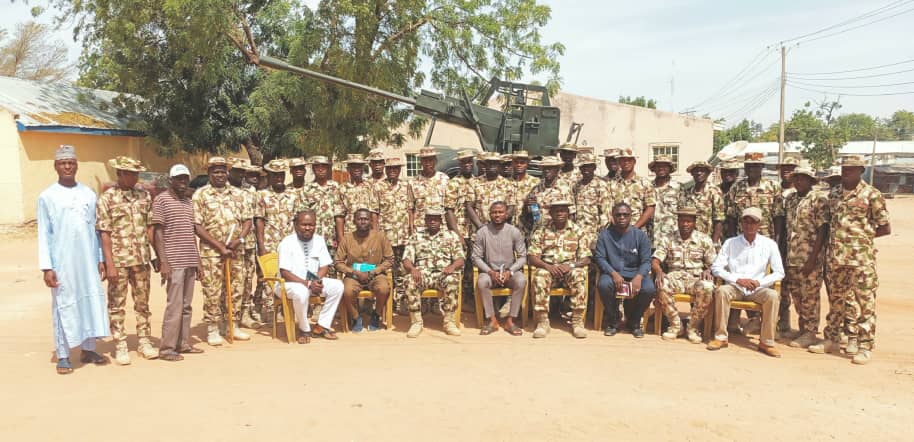DAPHO Expands Intervention to the Military in Gombe State
The Drug-Free and Preventive Healthcare Organization (DAPHO) has extended its advocacy efforts to the 301 Artillery Regiment in Gombe State, a unit of the Nigerian Army.
This initiative, part of the organization’s broader advocacy strategy, aims to raise awareness among key stakeholders and law enforcement agencies about the challenges faced by people who use or inject drugs, particularly in Northern Nigeria, where drug use is widespread.

According to the 2018 National Drug Use Survey, over two million Nigerians in the North-East engage in drug use, with Gombe State having a Drug Use prevalence of 13.6% making it the state with the most prevalence of drug use in North-East with 350,000 persons said to be using drugs.
In response, DAPHO remains committed to providing vital information, education, and awareness campaigns to promote healthcare access and improve the well-being of people who use drugs in the regions where it operates.
As part of this effort, on January 28, DAPHO, under its Nigeria Tuberculosis, HIV, and Malaria Response Intervention Project (NTHRIP) funded by Global Fund, DAPHO extended its advocacy outreach to the military barrack in Gombe State. This engagement offered an opportunity to educate military personnel about the organization’s mission and the importance of harm reduction strategies in addressing drug use.
During the visit, DAPHO also addressed concerns raised by soldiers regarding drug use and emphasized the need for accessible, non-discriminatory harm reduction and healthcare services. These discussions were informed by DAPHO’s research report on injecting practices among people who use drugs in Gombe State.
This advocacy visit underscores DAPHO’s ongoing commitment to promoting inclusive and equitable access to healthcare and social services. It aligns with the organization’s mission to combat stigma and discrimination against people who use or inject drugs, ensuring that harm reduction remains a fundamental component of public health policy in Nigeria.

This Post Has 0 Comments